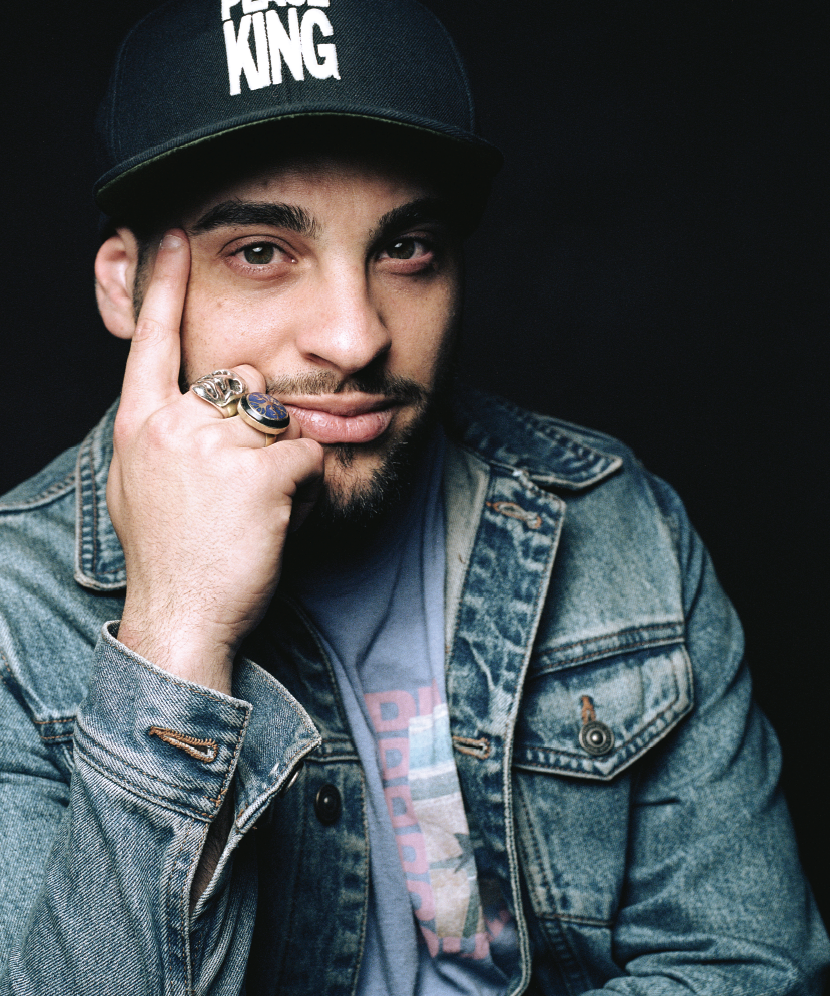Conversations: Samora Pinderhughes
Musician
Photos: PAPER MONDAY
What is your background, and how would you describe your work?
Samora was born a mixed-race kid in the Bay Area, a hotbed of revolutionary organizing and incredible music and art that immediately seeped into his soul. He started playing music at 2 yrs old; His father played him The Delfonics, Tupac, and Bob Marley, while his mother introduced him to Nina Simone, Fela Kuti, and Pete Seeger.
He became serious about making music his life after living in Cuba studying spiritual musical traditions. He moved to NYC to study at Juilliard under master teachers Kenny Barron and Kendall Briggs; It was during this time that he also met his artistic mentor, MacArthur-winning playwright Anna Deavere Smith. This started him down the path of writing lyrics and combining film/theatre with his music in radical new ways. With the help of these mentors, Samora eventually began to create his very own unique style, a combination of striking intimacy and carefully crafted, radically honest lyrics with lush, immersive music, maximalist visual storytelling and high levels of concept.
Samora is currently pursuing a PHD in Creative Practice and Critical Inquiry under mentor Vijay Iyer at Harvard University and is working on a boundary-breaking musical and visual project exploring the daily realities of violence, incarceration, policing, and detention in communities across the United States, The Healing Project. It is a search for the many meanings of what it’s like to live and love in environments of state violence.
What does your music represent for you?
When I make music, I’m just trying to be as honest and vulnerable as possible. And also trying to take care with the details - the inner voices of the chords, the silences, what each word means and how each word sounds. So for me music represents the care and time it takes to deal with emotions and complex ideas.
What inspires your writing and music?
It’s a process based on instinct - pretty much, it’s what I feel like I absolutely have to express and deal with. And a lot of it is trying to ask really hard questions, about myself and the world, and start from there. Questions I might be scared of. I’m also very inspired by reading and listening.
How does your music express the diaspora of the black experience?
I think it expresses that history because I am a part of that history, through both my bloodline and through the lineages that have come before me and that I’ve been fortunate enough to explore through mentors and communities that have taken me in. But really, I guess I would say, it’s up to the listener to decide how exactly my music fits in.
How does your music reflect your own experiences?
I am as honest and personal as I can be in my music. I talk about questions I have around my identity; what it means to live in today’s world; mental health, depression, anxiety; my experiences as a person of color, seeing what happens to myself, my family, my community in different ways. And I also try to take myself to task and challenge myself through my music - to show that I’m not perfect, and I can admit my own insecurities, my own complicities.
Do you feel your music pays respect to those that came before you and is that important to you?
That is extremely important to me. I am very open about my influences and how they show up in my work. I think everyone should admit those things - not everyone always does! It’s important to show people everything and everyone that’s a part of making the music, I think. I am completely indebted to so many artists that came before me, as well as the artists that I get to collaborate with - not just in music, but in poetry, literature, theater, film, and visual art as well.
What projects are you working on and what is significant about them?
I am putting out music right now from a project called VENUS, which is particularly about personal struggles around depression and anxiety. It’s a collaborative project with my friend, producer/drummer Jack DeBoe. I think people appreciate the vulnerability I’m bringing with these songs, and that I try to speak about dealing with daily life as a complicated process that’s never one way or one thing. If people want to hear more about this project, they can find the 2 newest singles - GATSBY and INERTIA, on any music platform. I’m always in process! Like all of us. And that I’ve been thinking recently about how important it is to ask questions of yourself every day.
